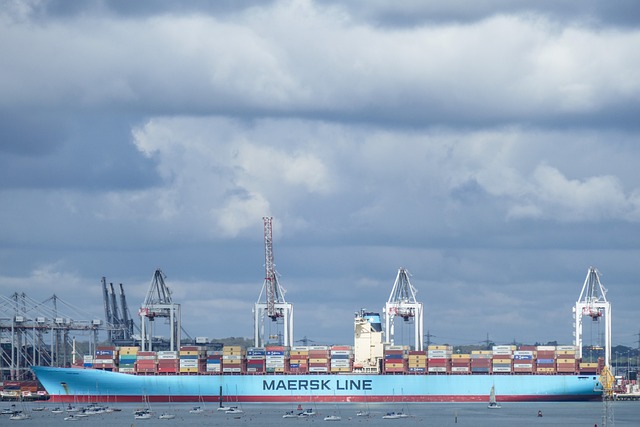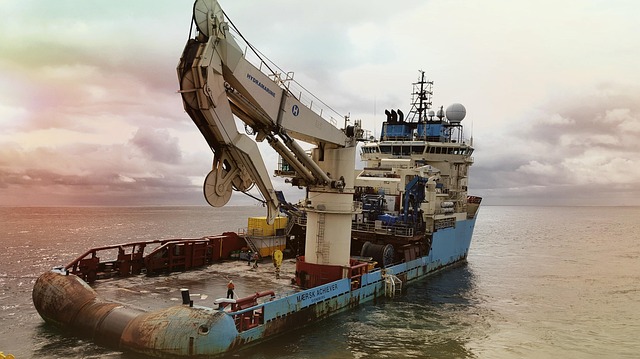Insulated containers are versatile and efficient solutions for modern refrigeration systems, particularly in hybrid electric and diesel sectors. With diverse applications from cold chain logistics to temporary storage, these containers come in various sizes and types, catering to industries like food service and pharmaceuticals. The market offers both new and used options, including insulated cold storage containers, shipping containers, and custom solutions tailored for specific needs. Paired with Hybrid Electric Refrigeration Systems (HERS), insulated containers maximize temperature control, extend product quality, and enhance safety. Diesel refrigeration systems, paired with these containers, provide reliable, versatile solutions for diverse climates and applications, ideal for food distribution, pharmaceuticals, and off-grid operations. Strategic planning and access to reliable resources can help overcome implementation challenges, unlocking the full potential of insulated containers in hybrid applications.
“Insulated containers are transforming modern refrigeration, especially in hybrid electric and diesel systems. This article explores their pivotal role in energy-efficient cooling solutions. We delve into hybrid electric refrigeration systems, highlighting their environmental benefits, while also examining traditional diesel systems and their resilient applications. The technical integration of insulated containers with these hybrids is dissected, along with the advantages and challenges. Discover how these innovative technologies contribute to sustainable, efficient cold chain management.”
- Understanding Insulated Containers: Their Role in Modern Refrigeration
- Hybrid Electric Refrigeration Systems: An Overview
- Diesel Refrigeration Systems: Advantages and Applications
- Integrating Insulated Containers with Hybrid Systems: Technical Considerations
- Benefits and Challenges: Implementing Insulated Containers for Hybrid Refrigeration
Understanding Insulated Containers: Their Role in Modern Refrigeration

Insulated containers have emerged as a pivotal component in modern refrigeration systems, offering both versatility and efficiency. These specialized containers are designed to maintain optimal temperatures for perishable goods while providing a mobile and flexible storage solution. Their role is especially crucial in the hybrid electric and diesel refrigeration sectors, where energy-efficient cooling is paramount.
With various applications, from cold chain logistics to temporary storage, insulated containers come in different sizes and types, catering to diverse needs. You can explore options like new or used insulated containers, each with its advantages. Some even offer modifications for specific industries, such as food service or pharmaceuticals. The market for these containers is dynamic, with manufacturers constantly innovating to meet the evolving demands of a globalized and environmentally conscious world.
Hybrid Electric Refrigeration Systems: An Overview

Hybrid Electric Refrigeration Systems (HERS) represent a significant advancement in cold chain logistics, especially when paired with insulated containers. These systems combine the efficiency and environmental friendliness of electric power with the reliability and versatility of diesel technology for refrigeration. HERS can adapt to various applications, from short-distance hauls to long-term storage, thanks to their flexible fuel sources. Electric motors provide precise temperature control and reduced operational costs compared to traditional diesel systems, while diesel generators kick in during peak demand or remote locations without reliable electricity.
Insulated containers play a pivotal role in maximizing the benefits of HERS. By providing an efficient insulation barrier, these containers help maintain optimal product temperatures for extended periods, ensuring quality and safety. Whether you’re looking to buy insulated containers, rent them for temporary needs, or explore custom modifications, the market offers a wide range of options from new to used. Insulated cold storage containers, shipping containers, and storage containers equipped with HERS contribute to sustainable practices in food distribution, pharmaceuticals, and various industrial sectors, ultimately streamlining logistics operations.
Diesel Refrigeration Systems: Advantages and Applications

Diesel Refrigeration Systems offer several advantages that make them a preferred choice in various industries, especially when paired with insulated containers. One of their key benefits is versatility; these systems can be utilized for both refrigeration and heating processes, making them adaptable to diverse climates and applications. This flexibility allows businesses to optimize their operations, particularly in regions with fluctuating temperatures. For instance, in the food and beverage industry, diesel refrigeration is invaluable for maintaining perishable goods’ quality during transportation and storage. Insulated containers, when fitted with these systems, become mobile cold storage solutions, ensuring product freshness even in remote locations.
Another advantage lies in their reliability and durability. Diesel engines are known for their robust performance, capable of operating consistently in harsh conditions without sacrificing efficiency. This ruggedness makes diesel refrigeration systems ideal for outdoor use, construction sites, or off-grid operations where access to electricity may be limited. With proper maintenance, these systems can have a long lifespan, making them a cost-effective solution for businesses seeking reliable cold storage capabilities, whether it’s for temporary events, seasonal demands, or permanent facilities, with options available through new and used insulated containers from reputable dealers.
Integrating Insulated Containers with Hybrid Systems: Technical Considerations

Integrating insulated containers with hybrid refrigeration systems presents unique technical opportunities and challenges. These robust, temperature-controlled structures are designed to withstand various environmental conditions, making them ideal for hybrid setups that combine electric and diesel power sources. When selecting or specifying insulated containers for such applications, it’s crucial to consider the specific cooling requirements, power interfaces, and potential modifications needed to integrate seamlessly with the hybrid system.
Insulated container dimensions, materials, and construction play a significant role in ensuring efficient heat transfer and energy utilization. New and used insulated containers are available from various dealers and suppliers, offering options for different budgets and applications. Some providers even offer custom insulated containers, allowing for specialized modifications to meet unique refrigeration needs. Whether you’re looking to buy insulated containers, rent insulated containers, or explore insulated container leasing, understanding these technical considerations is vital to optimize performance and reliability in hybrid electric and diesel refrigeration systems.
Benefits and Challenges: Implementing Insulated Containers for Hybrid Refrigeration

Implementing insulated containers for hybrid refrigeration systems offers significant benefits, revolutionizing cold storage and transportation solutions. These containers provide efficient temperature control, allowing for safe and reliable transport of both perishable goods and sensitive equipment. With their superior insulation, they maintain ideal product conditions, reducing spoilage and waste. Insulated containers also enhance energy efficiency by minimizing heat transfer, leading to cost savings and environmental benefits.
Despite these advantages, challenges exist when adopting insulated containers for hybrid systems. Customization is often required to accommodate specific refrigeration needs, adding complexity and potential cost. Finding the right insulated container dealer or supplier that offers a wide range of options, from new and used to custom-made and leased, is crucial. Additionally, ensuring proper dimensions and pricing can be a hurdle, especially when dealing with specialized insulated cold storage containers or refrigerated modular units. However, with strategic planning and access to reliable resources, these challenges can be navigated, unlocking the full potential of insulated containers in hybrid refrigeration applications.
Insulated containers play a pivotal role in revolutionizing hybrid electric and diesel refrigeration systems. By offering efficient temperature control, these containers enhance energy conservation and reduce operational costs. As the demand for sustainable cold chain solutions grows, further research and development into integrating insulated containers with hybrid systems will be essential. This advancement promises to create a more robust, eco-friendly, and economically viable future for refrigeration.
